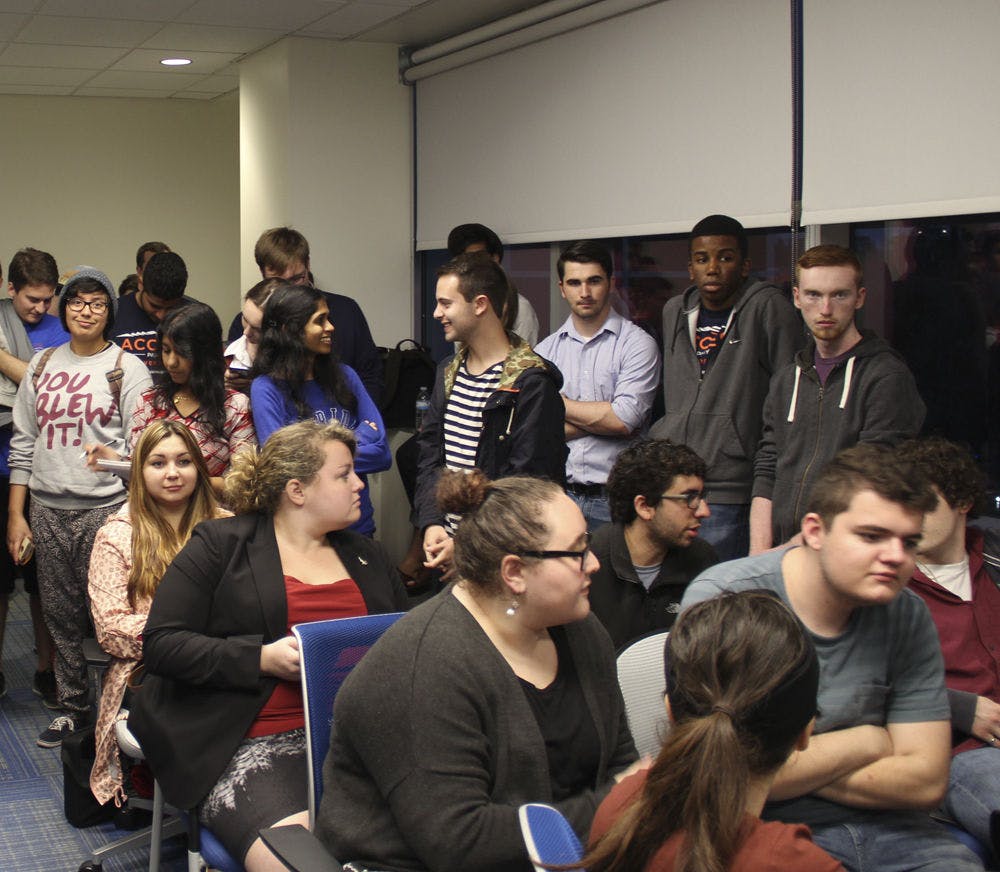Cheers erupted in a crowded room of about 60 students after UF’s Supreme Court ruled to allow an amendment for online voting to appear on the Spring 2016 election ballot Thursday night.
The Supreme Court posted a notice of the meeting to discuss the amendment Wednesday on the Student Government bulletin board. The ballot for SG’s Spring election must be finalized today.
The amendment was sent to UF’s Elections Commission Jan. 27 to review the summary of the amendment that will appear above it on the ballot. At that meeting, the commission voted to strike the phrase “including online students, PaCE students, Innovation Academy students, and study abroad students” from the summary.
Kelly Scurry, associate justice five, said he supported the decision to strike the phrase from the summary.
“In addition to having these groups of students listed, it could create an additional problem later on if there are other classes of students that were to arise,” he said.

Associate Justice Evan Malloy (left) reviews the online voting legislation with Associate Justice Joseph Lancos on Thursday night in the Reitz Union.
In an email to Global Vote on Jan. 27, Chief Justice Andy Schein wrote “All, You are good to go for the Elections Commission tonight. The Supreme Court will only look at the initiative if there is an unanswerable question at the EC level or if the decision is appealed.”
The Elections Commission did not have any unanswered questions, and the decision was not appealed at the Jan. 27 meeting.
Schein confirmed he sent the email but said he found there might be discrepancies between the Student Body constitution and the SG statutes.
Global Vote started a petition in October to put an online voting option on the ballot. According to the constitution, the petition needed 2,500 signatures. It received more than 3,000.
After the signatures are verified and the Elections Commission passes the summary, the amendment goes to UF’s supervisor of elections for inclusion on the ballot, according to the constitution.
This is subject to the review of the Supreme Court.
But UF’s constitution and codes contradict each other.
“Internet Online Voting is unconstitutional and may not be utilized in Student Government elections,” according to section 700.4 of the constitution’s 700 codes.
In section 771.4, it reads “Secure location online voting is legal and may be utilized in Student Government elections.”
In 2008, the court ruled online voting unconstitutional, but Schein said the constitution overrules the codes.
Evan Malloy, associate justice three, said the Supreme Court shouldn’t look at the constitutionality of the amendment at Thursday’s meeting. Amendments to the constitution could contradict the constitution itself.
“I don’t think that is our role, and I think the 2008 case might have been standing outside the batter’s box, if you will,” he said.
A crowd waits in room 2103 in the new Reitz Union to hear the University of Florida’s Supreme Court confer on the online voting article.






